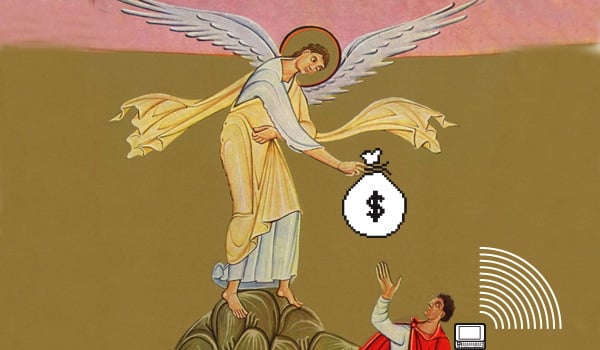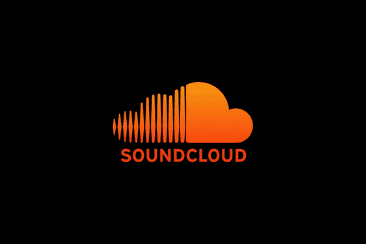Making money as a musician can come in a variety of forms, ranging from sales of your music to potential brand endorsements as you start to grow. However, it’s often difficult finding ways to fund your career, especially in the early stages.
Selling your music and playing live shows are going to be a large part of your income, but how do you fund the recording and production of your music and how can you afford to travel to gigs? Below are a few ways you can generate funding for your career without having to sell your organs.

Crowdfunding
Crowdfunding is a fairly new form of raising money that has turned the idea of business investment completely upside-down. The traditional methods of seeking out investment often involved asking for large amounts of money from a small number of people.
However, crowdfunding is the complete opposite; smaller amounts of money are asked for by a large number of people. The concept is to gather a group of people who have collective ambition or desire for a project to succeed, and those who create the projects can reward investors for their monetary contributions.
Some of the most popular crowdfunding websites are
Between them, they have helped create some truly exciting new businesses and music campaigns.
Pros
- Creates a democratic, equal marketplace for businesses and individuals, offering both parties similar opportunities. This also helps artists connect with their fans on a closer level.
- For the most part, helps filter through the most desired products and services in the market through selective funding.
- There are a vast number of projects and you can receive funding for nearly anything. The more creative, the better the appeal.
Cons
- The market is somewhat saturated, making it difficult for certain individuals or companies to make themselves heard. As of 2009, there have been around 190,000 projects launched on Kickstarter with a success rate of 40.6%. Therefore, you have to really make your project stand out if you’re going to succeed.
- As well as there is a huge number of legitimate projects on crowdfunding, there are also a lot of “fake” or irrelevant projects, such as “I want a PS4.” The platform may start losing credibility soon.
- It can be difficult to meet expectations, and some people may feel let down by the outcome of a project. Make realistic promises and goals.

Grants and arts funding
If you would like to receive funding for music but do not want to get lost in the cramped, murky waters of crowdfunding, there are a number of other options available to you.
Most local governments or councils will be in the position to offer you funding for an art project you would like to be involved in.
For example, in the US, National Endowment for the Arts (NEA) and United States Artists have donated over $5 billion to artists and other creative individuals for projects and campaigns. In the UK, the Arts Council receives money from both the government and the National Lottery Fund, which it then reinvests into the arts and other cultural organisations in England. Last year, £202 million was specifically allocated for grants, and therefore the money is available for investment in musicians around the country.
Pros
- The funding is often only granted if you are using it for an activity that will improve and/or educate people about the arts. Although you might be wanting to use the money to go on tour, you can use the funding to have some enriching experiences by teaching music for example or starting a project that will bring people closer to art and culture.
- You’re likely to make important contacts. By applying for and potentially being granted funding, you will meet people who may be interested in investing in some of your future projects, like that tour of the country.
Cons
- The process can take a while to complete, without you ever actually receiving funding.
- Some grants or funding are high interest, meaning you may be paying back more than you ultimately earn in the long run.

Angel investors
Angel investors are wealthy individuals that are looking to invest in either businesses or people who are seeking funding for new ventures or current businesses. More recently, some individual angel investors have been joining together in groups called “syndicates” or “angel networks.”
These groups spread the risks between themselves and have a wider, more valuable knowledge base as a group. If seeking funding from an angel investor, it may be good to consider syndicates or groups, as there is a higher chance of support and knowledge with regard to your area of work.
Pros
- Most angel investors seek to assist your project in other ways beyond funding and want to help you succeed.
- “Syndicates” or “networks” can offer group support and a wealth of expertise.
- Many angel investors started as entrepreneurs, so can provide useful contacts and management.
Cons
- Often high risk, as angel investors normally require a high return on investment. That means you will have to work really hard to make your project work.
- There is no national directory for angel investors, so it can be risky going ahead with somebody you know nothing about.
- Some angel investors are just looking for a quick and easy monetary return, with no concern about your success.

Playing gigs
Playing live shows is not only amazing fun (most of the time), but it can also be a great source of income (most of the time). Unfortunately, many live music venues will try and avoid paying you for performing, claiming “it will be great exposure!” These are often the ones you want to avoid.
Payment can come in the form of a meal or your travel expenses, but you should be receiving something for your time. One major source of income from playing live comes in the form of performance royalties.
Performance royalties are paid to you if you have registered yourself and your original songs to the collection society relevant to your territory. Examples of collection societies include PRS for Music in the UK, JASRAC in Japan, GEMA in Germany, SACEM in France, and SESAC, BMI and ASCAP in the United States.
After you have performed, you must inform the collection society when and what you’ve played, and they’ll pay you accordingly! It’s also a good idea to register with an organisation that is concerned with your well-being of you as a musician.
In the UK, there is the Musician’s Union, which strives to ensure that you are paid appropriately and treated fairly by members from all sectors of the music industry. You can find out more about them and register here. If all of the paperwork gets too much once you have registered yourself with the appropriate organisations, you can always seek out a publisher for an administration deal to help you out.
Filling in for a band’s missing member is a great thing to do as well because you can earn a quick bit of money whilst also creating some great contacts for the future.
Pros
- Payment can come from a number of sources, each equally as valuable.
- It’s great for promotion and marketing. However, unless you’ve offered to play for free, or at least a pint and a sandwich, don’t accept excuses from venue owners or promoters about not getting paid.
- It’s fun! There is hardly anything better than getting up on stage with your friends, playing some of the songs you’ve written together and then having a few drinks afterwards. So enjoy it.
Cons
- Finding gigs can be an annoyance. Although there seem to be so many venues hosting live music, artists can often struggle to find venues that treat them well and suit their sound.
- Payment is always a big issue and it can sometimes cause friction between band members, or artists and venue owners/promoters.
- It can be expensive, which often seems like a catch-22. You’re paying money to travel somewhere and receive money, often only just about breaking even. You have to weigh up your love for your music and performance, with the overall costs.
.jpg)
There are a plethora of ways to make money from your music, but it can often be difficult to get started. These four methods are different avenues for artists to explore when they’re in the early stages of their careers.
The funding you receive is useful to help you start earning money that you can then reinvest into future projects and get your career rolling!










